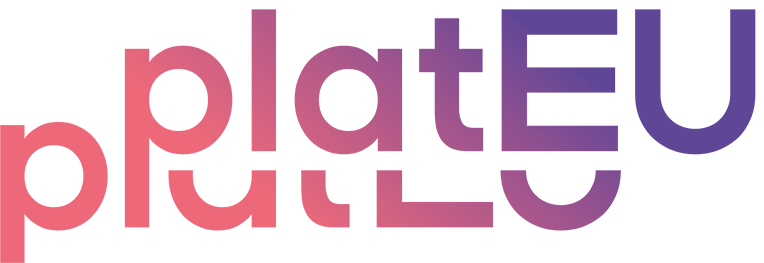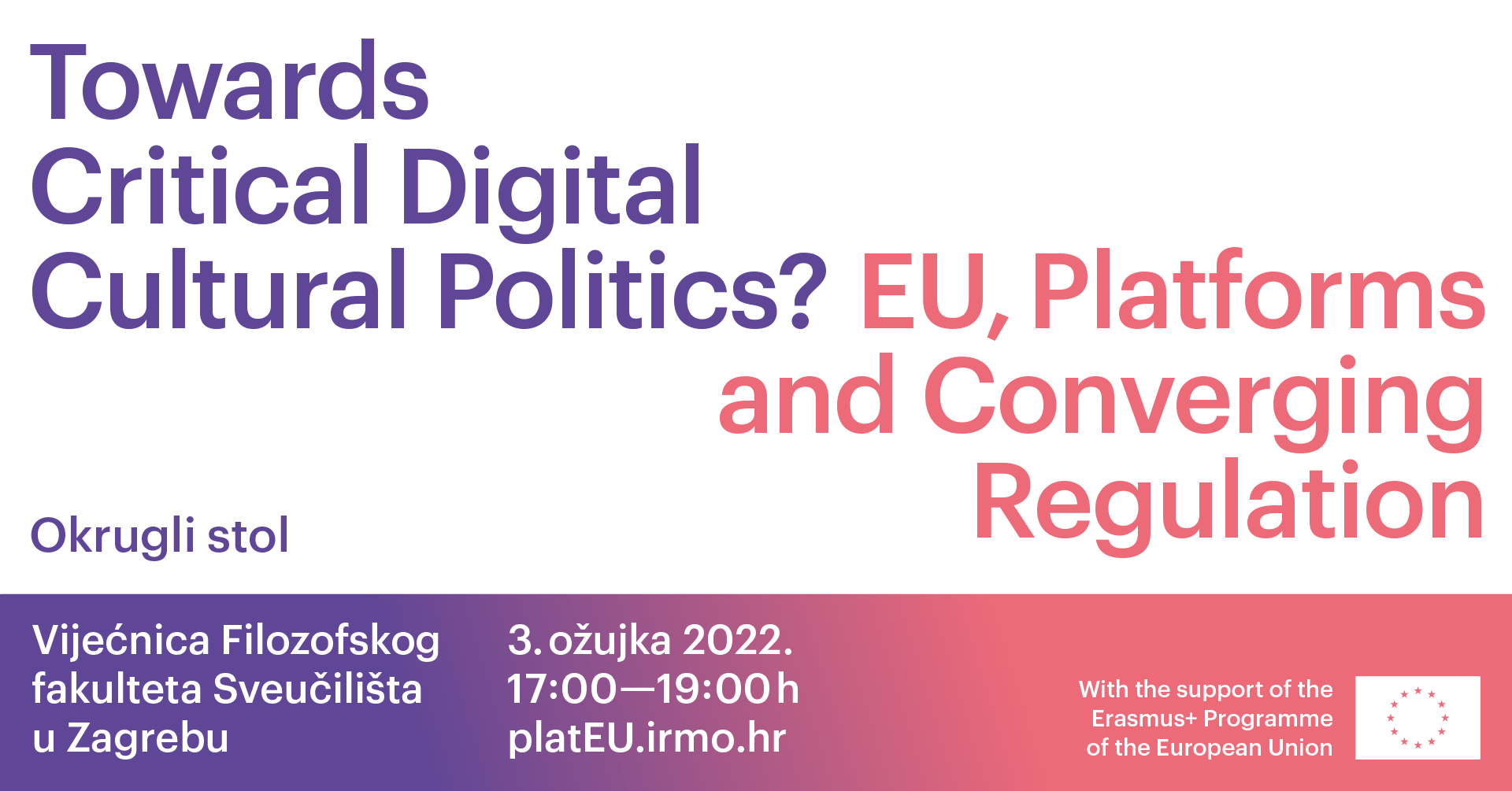It is our pleasure to invite you to the round table discussion ‘Towards Critical Digital Cultural Politics? EU, Platforms and Converging Regulation’ that will be held from 17:00h to 19:30h, 3rd of March 2022, at the Faculty of Humanities and Social Sciences, Ivana Lučića 3.
Round table discussants:
Bjarki Valtysson, University of Copenhagen, Denmark
Aleksandar Brkić, Goldsmiths University, London, UK
Aleksandra Uzelac, Department for Culture and Communication, IRMO
Paško Bilić, Department for Culture and Communication, IRMO
Moderator: Jaka Primorac, Department for Culture and Communication, IRMO
Opening remarks: Helena Popović, Department of sociology, Faculty of Humanities and Social Sciences, Zagreb.
The programme of the round table is available here.
Please register your attendance at the following link.
Round table is organized by Institute for Development and International Relations in partnership with the Department of sociology, Faculty of Humanities and Social Sciences, Zagreb and the Section for Sociology of Media, Croatian Sociological Association (HSD).
(Note: The program will be organized in correspondence with the current epidemiological measures).
On the round table topic:
Due to their ubiquitousness, online platforms impact our offline and online lives more and more each day so that selected authors are speaking of the rise of ‘the platform society’. Thus, platforms capture the attention of policy makers – due to their dependence on user data, impacts on traditional cultural and audio-visual supply and demand, transnational reach, and excessive concentration of power. This has not been different in EU where regulation of digital technologies has been high on the policy agenda, especially taking into account the domination of large, mainly US, businesses (e.g. Google, Amazon, Facebook, Apple, Microsoft, Netflix) that (implicitly or explicitly) impact the European cultural and audio-visual sector. This opens up numerous questions in regards to the changing nature of the digital culture, among which query is – whether it should be regulated, and if so-how? In his book Digital Cultural Politics: From Policy to Practice, Bjarki Valtysson highlights how for understanding these processes one must take convergence and converging regulation as crucial concepts and, furthermore, calls for the critical digital cultural politics approach. His book also opens a number of questions, some of which will be tackled in this round table, such as:
How can we interpret changes in European Union policies relating to online platforms and cultural and audio-visual sectors? How well, if at all, are they challenging US platform monopolies? How are they balancing market competition with cultural diversity and pluralism?
With the increase of the usage of online platforms during the COVID-19 pandemic has there been an acceleration of the (re)creation of digital cultural policies (in Europe)? And can we talk about global online platforms as new ‘cultural institutions’?
How do European public cultural institutions grapple with changes brought about by the online platforms? What are the implications for produced and distributed content? Can European projects such as Europeana platform be an adequate answer?
What theoretical frameworks would be best suited to interpret these changes?



